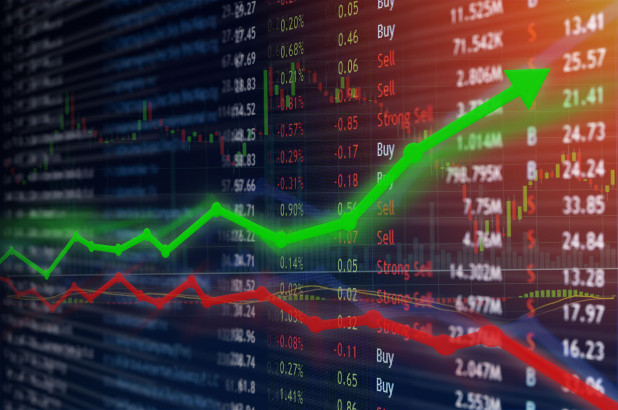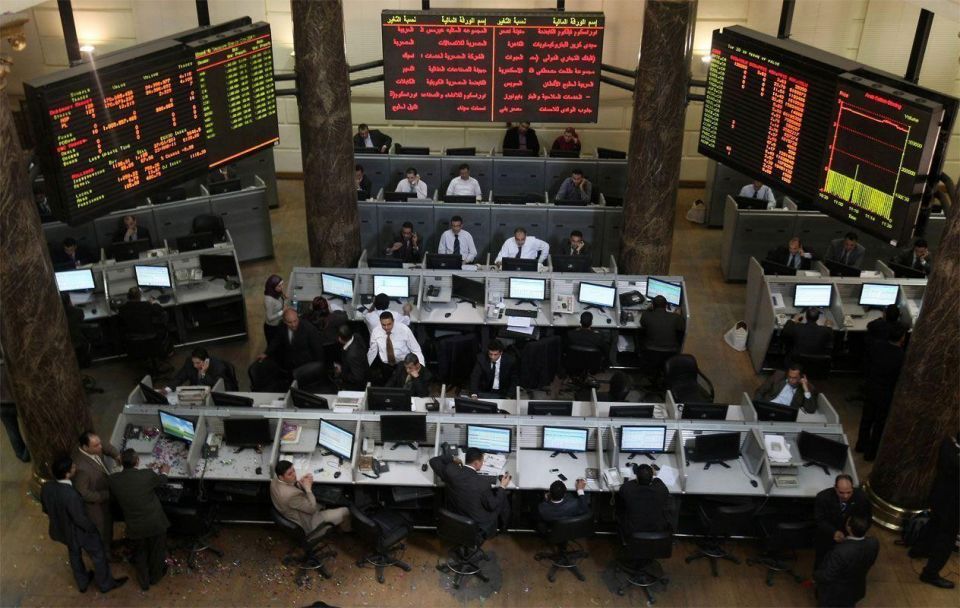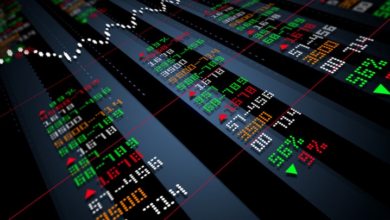Egyptian fund manager Mohamed Ayad watched his clients lose money for months until he himself became a victim of the stock market's slump.
"I was fired with many others when trading volumes went down," said Ayad, a man in his 30s who worked for a securities firm in Cairo until last year. "I have been unable to find a new job as many other people working in the financial sector have also been laid off."
Over two years after Egypt's revolution ousted president Hosni Mubarak, the stock market continues to sag, plagued by sluggish trading turnover, a lack of new equity issuance and the reluctance of many big foreign investors to commit money.
The effect is being felt well beyond the community of finance professionals in Cairo and Alexandria — the market is viewed as a barometer for business confidence, and its weakness is preventing companies from using it to raise money.
Although Egypt's economy is struggling, the market's problems are as much political as economic. Investors feel the government is unsympathetic to them, and inclined to intervene in the market to obtain money or settle political scores.
Two official decisions this month have raised hopes that the government's approach to the market is changing, and that it can reach an accommodation with investors. But the decisions will need to be followed by the resolution of other long-running issues for confidence to return, analysts and investors say.
Public relations
After Mubarak's overthrow the Muslim Brotherhood, which took the lion's share of political power, mounted a public relations campaign to reassure investors that its Islamist ideology did not conflict with their desire to make money.
By late last year the campaign appeared to be working; the main stock index, which halved in the months after the revolution, had recovered almost two-thirds of those losses.
But early this year, a series of regulatory incidents hit the market. One was a clash between authorities and Orascom Construction Industries, the market's largest stock.
In late February the Egyptian Financial Supervisory Authority (EFSA) intervened to suspend a multi-billion dollar offer for Orascom's Amsterdam-listed affiliate OCI NV to buy out the shares of the Cairo-listed company. The EFSA said it wanted more information about the transaction, which could result in Orascom being delisted from Cairo.
Then in early March, the government slapped a travel ban on Orascom chief executive Nassef Sawiris and his father Onsi Sawiris — two of the country's most prominent businessmen — in a probe into alleged tax evasion by the company.
Later that month, authorities spooked the market by imposing a new tax covering investment gains on an offer by Qatar National Bank (QNB) to buy shares in National Societe Generale Bank (NSGB) — and telling shareholders about the tax only after they had agreed to sell.
Taken together, the incidents suggested the government's attitude to the market was not as benign as it had claimed. A fledgling recovery of foreign fund inflows into the market was halted; the index is down 11 percent from its January peak.
The market is still debating authorities' motives. One theory is that the government, with its budget deficit officially projected to rise to LE197.5 billion (US$28.5 billion) in the fiscal year that will start on July 1, is increasingly desperate to raise money — and that it sees the market as a tempting source of cash.
If this theory is right, the government may be disappointed. Much of the money it raises in the short term could be lost in the long term as investors become more reluctant to trade stocks and companies shy away from listing their shares on the market.
"They make less than $10 million, $9 million from this tax, a very small amount for making all this trouble," said Karim Abdelaziz, who manages an Egyptian share fund worth 1 billion pounds at Cairo-based al-Ahly Fund & Portfolio Management.
Another possibility is that as Brotherhood-backed President Mohamed Morsy consolidates power, his administration is becoming more eager to settle political scores with businessmen who prospered under the old regime. The Sawiris, and wealthy stock market investors, fall in that category.
In the long run, that strategy could also be counter-productive, by deterring the business investment which Egypt needs to create jobs and repair its economy – and which the Muslim Brotherhood will need to retain its political support.
Abdelaziz said the Orascom tax case could lead to a lengthy court battle, which would risk scaring off more investors who were already concerned about land sales that have been revoked by the government. Authorities accuse some real estate firms of having paid too little for land because of cosy relationships with officials in the Mubarak era.
A third theory is that officials making decisions affecting the stock market, some of them new to government after being excluded from power by Mubarak, are simply too inexperienced — or perhaps too distracted by other challenges — to make policies with investor confidence in mind.
Hani Helmy, chairman of El Shorouq Brokerage in Cairo, said the government was too busy dealing with street violence, fuel shortages and power cuts to focus on helping the stock market.
"I think since the revolution until now … the stock exchange is not a priority to deal with — maybe we are number 10, number 20," he said.
Positive signs
There have been two signs this month that authorities' approach toward the market may be becoming more benign.
One was an announcement by the EFSA that the stock exchange would reinstate the buying and selling of individual stocks within the same trading session from the first week of May, in an effort to boost market volumes.
Buying and selling a stock in the same day has been banned since the revolution destabilised the market in February 2011. EFSA head Ashraf El Sharkawy said the resumption would increase the number of transactions by between 30 and 40 percent and help to alleviate "huge liquidity problems" on the exchange.
By itself, the opportunity to trade stocks more frequently will not restore investors' faith in the government — but it does suggest that within the government, there are still officials working to improve market conditions.
The second positive sign was a decision by parliament's economic and financial committee to scrap the tax on investment gains and return to investors the money already levied on the NSGB deal.
Abdullah Shahata, an aide to the finance minister, told Reuters that members of parliament had decided the tax would have a "negative effect on the investment climate in Egypt."
Daniel Broby, chief investment officer of British-based Silk Invest, said the tax saga should be seen as part of a learning curve in economic management for Mursi, and was not a bad omen for the market in the long run.
"The tax imposed on stock market gains … is the sort of knee-jerk reaction that inexperienced politicians typically make and regret," he said.
At least two more things may need to happen for the market to feel comfortable with the government. One is a resolution of the Orascom tax dispute; Orascom said on Tuesday it was "in an advanced stage of negotiations with the Egyptian Tax Authority and will announce more details within the coming few days".
The other thing is for the government to give clearance for a merger of Cairo-listed EFG-Hermes, the Middle East's largest investment bank, with QInvest of Qatar. The deal was originally signed on 4 May last year; a clause in the agreement states it will lapse after 12 months if regulatory approval is not forthcoming.
The merger is politically sensitive in Egypt because both of EFG's chief executives, Hassan Heikal and Yasser al-Mallawany, are accused by authorities of illegal share dealings in relation to a 2007 transaction, along with the two sons of ousted Mubarak. EFG has said it will defend the CEOs.
Uncertainty over whether the deal will go ahead has weighed on EFG's share price and caused concern about Egypt's relations with Qatar, which has promised billions of dollars of badly needed financial aid to Cairo.
If such issues are resolved and confidence in the regulatory environment revives, Egypt's fast-growing population of 84 million could make its stock market attractive. Some institutions are already planning based on that assumption.
"We plan to open five to six branches in the provinces in the Nile Delta and Upper Egypt in the next three years to attract retail investors," said Hussein Choucri, chairman of local firm HC Securities & Investment, which manages assets worth almost LE5 billion in 14 investment funds.
Fund manager Helmy said a Muslim Brotherhood victory in this year's parliamentary elections, which are expected as early as October, might actually calm the market by giving parliament a mandate to take difficult economic decisions.
"People would accept the Brotherhood for the first two years, and judge them afterwards," he said.




